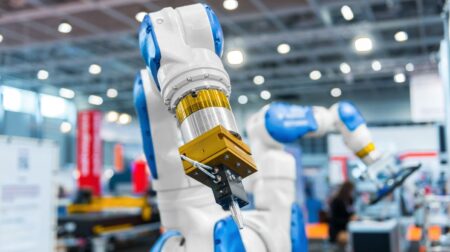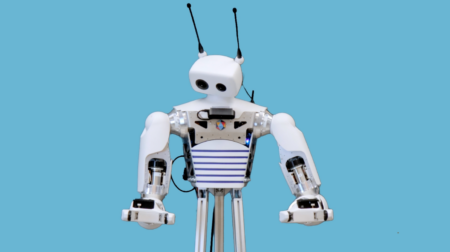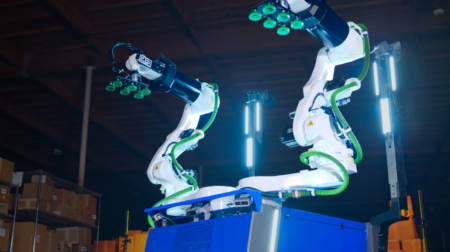IntuiCell, a Nordic deep-tech startup based in Sweden, has announced a milestone that it believes could redefine the future of artificial intelligence.
The company, which emerged as a spin-out from Lund University, has developed a digital intelligence system capable of real-world and real-time learning—ushering in a new era of AI that closely mirrors biological processes.
This breakthrough marks a significant departure from traditional AI systems that rely on static models and predefined datasets. Instead, IntuiCell has engineered a “digital nervous system” that allows machines to learn and adapt, almost like a living organism.
READ MORE: Robotics and Automation 2025 draws thousands to NEC Birmingham
The company unveiled the first live demonstration of this technology earlier this month, showcasing a robot quadruped, known as “Luna,” augmented with the “digital nervous system.”
Unlike conventional AI agents, that require extensive programming and training, Luna learns through interaction with its environment, much like a newborn animal discovering their own abilities.
The development of Luna represents the first successful attempt to create a physical AI agent that can autonomously learn and adapt in real-time, simulating the functions of a biological nervous system.
This achievement follows three decades of groundbreaking neuroscience research at Lund University, where IntuiCell’s founders focused on understanding the core functions of the brain.
The company’s first major breakthrough replicates the key functionality of the spinal cord, a crucial component for processing and reacting to sensory information. Additionally, IntuiCell is on its way to developing a functioning model for the thalamocortex, the brain region responsible for processing and predicting sensory input.
IntuiCell predicts a world where its “digital nervous system” enables machines to learn in the same way a human or animal would—through direct experience and interaction. To further demonstrate this, the company plans to hire a professional dog trainer to teach Luna new skills, a move that contrasts sharply with current AI approaches that rely on vast datasets and complex algorithms.
Traditional AI systems, which are based on backpropagation, (an algorithm for supervised learning of artificial neural networks using gradient descent), and predefined datasets, are limited in their ability to adapt to new challenges.
Achievements and innovations in retail and e-commerce, healthcare and pharmaceuticals, food and beverage, automotive, transport & logistics, and more will be celebrated at the Robotics & Automation Awards on 29 October 2025 at De Vere Grand Connaught Rooms in London. Visit www.roboticsandautomationawards.co.uk to learn more about this unmissable event for the UK’s robotics and automation sectors!







